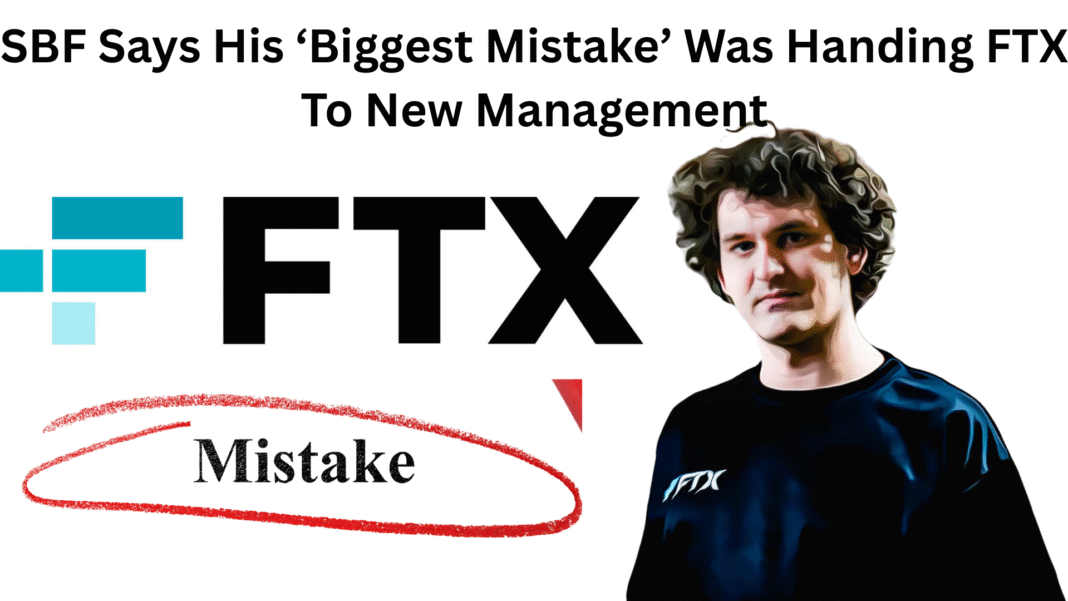Sam Bankman-Fried told Mother Jones that his single biggest mistake was handing over control of FTX on Nov. 11, 2022. He said the move cost him a last chance to find an outside rescue.
Minutes after he signed the authority to the new management, he says he got a call about a possible investor. By then, it was too late, he told the magazine. The moment, he added, stands out as a personal low point in the collapse of the exchange.
Who is to blame?
In their bid to vacate his conviction, Sam Bankman-Fried and his parents assert that law firm Sullivan & Cromwell played a central role in FTX’s collapse.
They stated the law firm took control of the exchange, placed John J. Ray III as CEO, and profited heavily from the fallout, the claim appears in court papers filed as part of the effort to overturn his conviction.
Allegations against the law firm
The family’s argument paints Sullivan & Cromwell as more than a legal adviser. They say the firm wrested FTX away from Bankman-Fried, installed Ray in his place, and then benefited from the company’s failure.
The complaint says the firm gained financially as the estate moved through bankruptcy, pulling in what the family describes as nearly a quarter of a billion dollars in fees. The filings press the idea that the firm’s actions changed the direction of the company at a critical moment.
The papers name John J. Ray III as the executive who replaced Bankman-Fried. They argue that his appointment shifted control and that it removed any chance SBF had to steer the company through an outside rescue.
The family contends that the change in leadership came just before chances emerged to save the firm. They frame that turnover as a decisive event that sealed FTX’s fate.
How did the collapse unfold?
FTX and its sister firm, Alameda Research, hit trouble when customer funds were used to cover Alameda’s trading losses. That unauthorised transfer created what observers now call the Alameda gap.
With liquidity drained, the firms unravelled over a few days, and new management, led by John J. Ray III, took charge and moved to file for Chapter 11 on Nov. 11, 2022. The new team also engaged the law firm Sullivan & Cromwell to handle the bankruptcy.
Also Read: Data Leak Exposes FTX Creditors To New Wave of Scams, Activist Issues Warning
Arrests and criminal cases
Bankman-Fried was arrested in the Bahamas on Dec. 12, 2022, after U.S. prosecutors brought charges.
He was extradited to the United States in January 2023 and later convicted.
The criminal case traced the flow of customer assets and examined who authorised transfers between FTX and Alameda.
Role of advisers and internal planning
Two days before the bankruptcy filing, a Sullivan & Cromwell lawyer, Andrew Dietderich, emailed Bankman-Fried with a plan that mentioned hiring Ray as chief restructuring officer if Chapter 11 became necessary.
Creditors later sued Sullivan & Cromwell, claiming the firm had aided the fraud and benefited financially. That suit was voluntarily dismissed in October 2024, and the public records show Sullivan & Cromwell billed over $171.8 million for its work on the estate through June 27, 2024.
Repayments and asset recovery
The FTX estate has begun returning money to creditors, and the first large distribution was $1.2 billion in February.
A few months ago, in May, the estate issued a $5 billion payout. A payment in September brought the total returned to $7.8 billion.
Estate filings estimate as much as $16.5 billion in recovered assets, leaving roughly $8.7 billion still to be repaid.
The plan aims to return about 98% of customers’ funds and provide 118% of the account values recorded in November 2022.
What the broader picture shows?
Nearly three years on, creditors have seen significant repayments. The estate’s payouts mark real progress, but they also show how long and intricate large recoveries can be.
Criminal convictions, civil claims, and litigation involving advisers and service firms mean the legal work will continue for some time. Each new filing raises more questions about responsibility and process.
Also Read: FTX Creditors Take Legal Action Against Kroll Over Daily Scam Emails Following 2023 Data Leak


